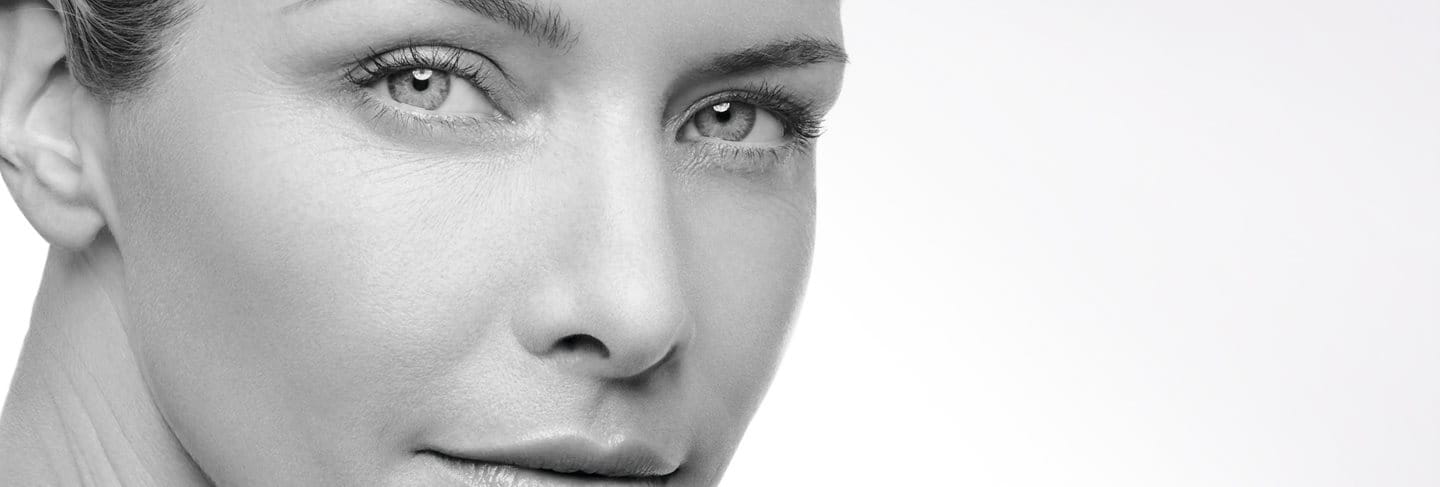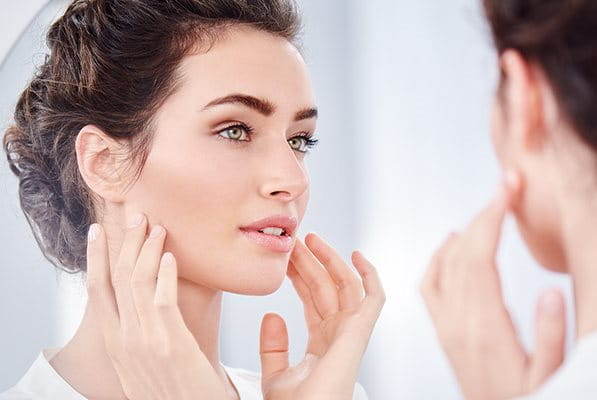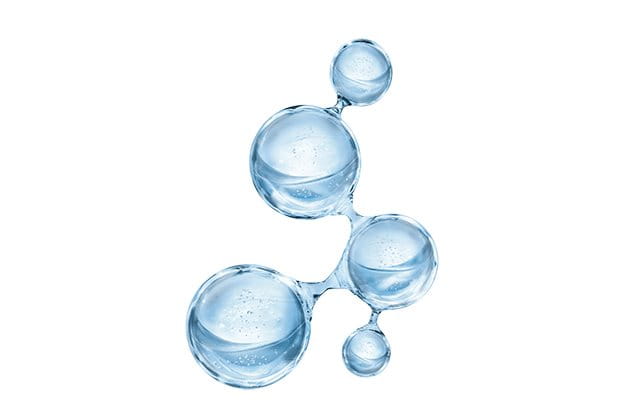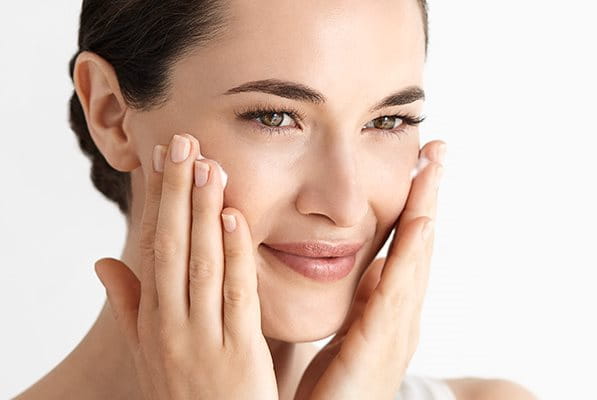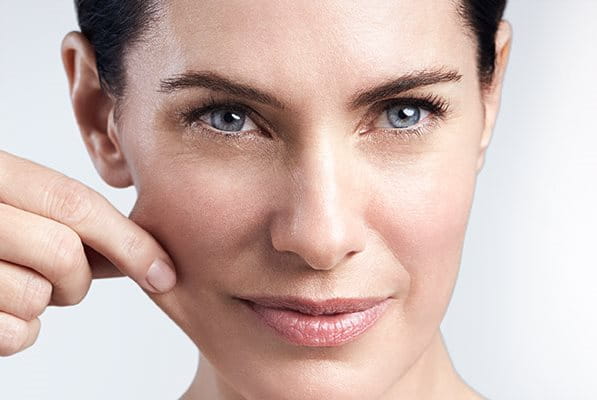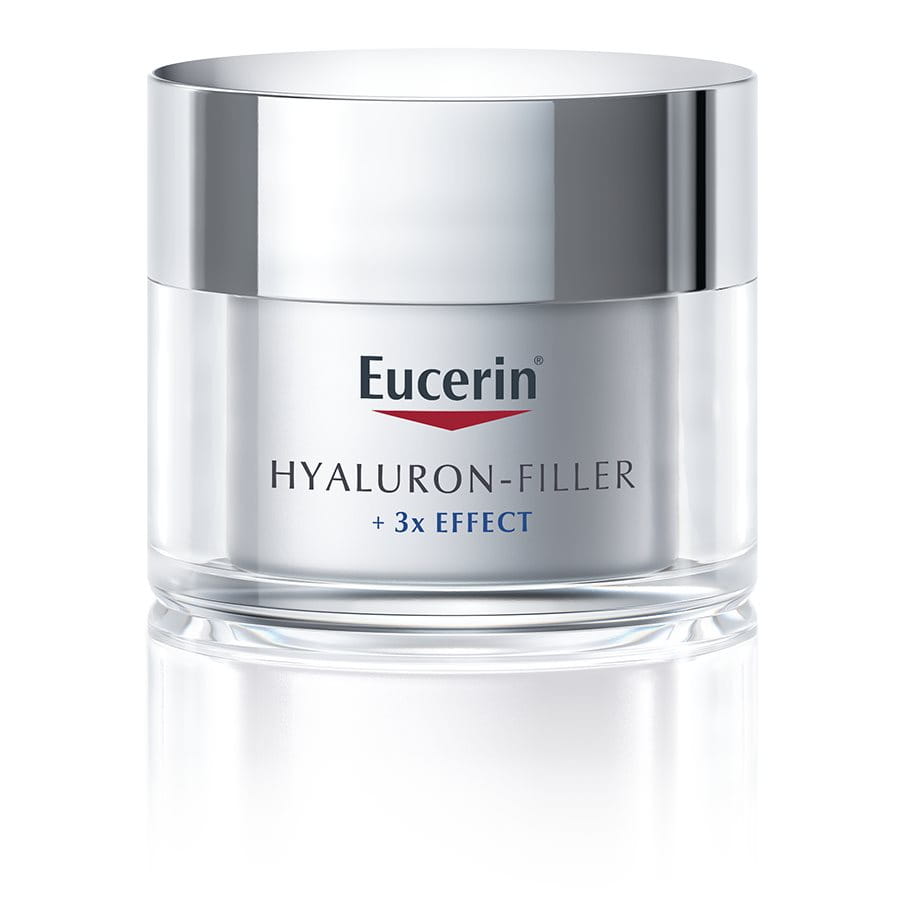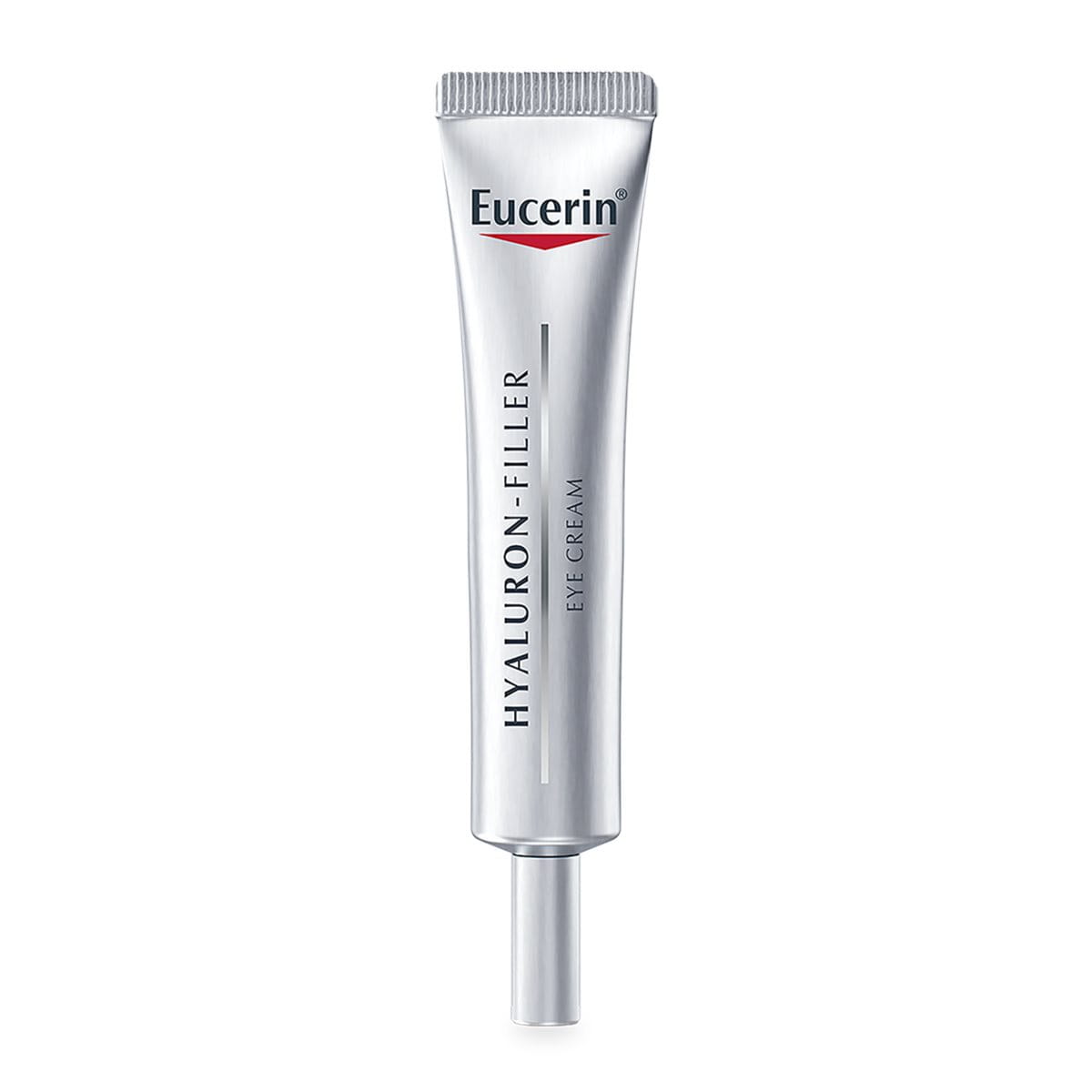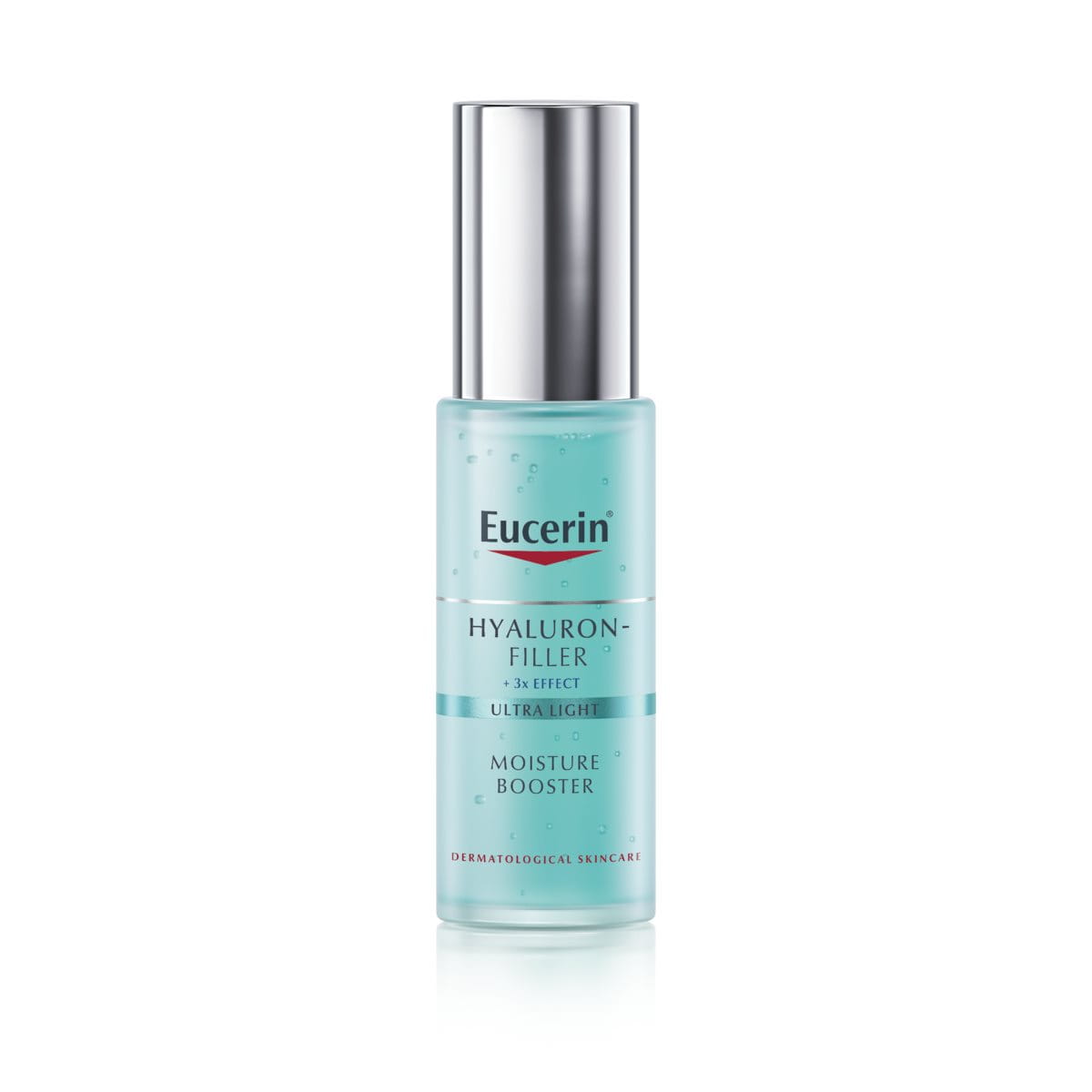Our skin starts to age around the age of 25. The reasons for general skin ageing can be broadly divided into two: Internal and External. The internal factors are intrinsic, due to chronological ageing and genetics and cannot be changed. However the external factors can be controlled within a holistic approach to prevention.
Ageing skin structure
How the structure of the skin ages
Ageing occurs due to a combination of intrinsic, internal factors and external, lifestyle factors. General skin ageing happens in each part of the skin’s structure.
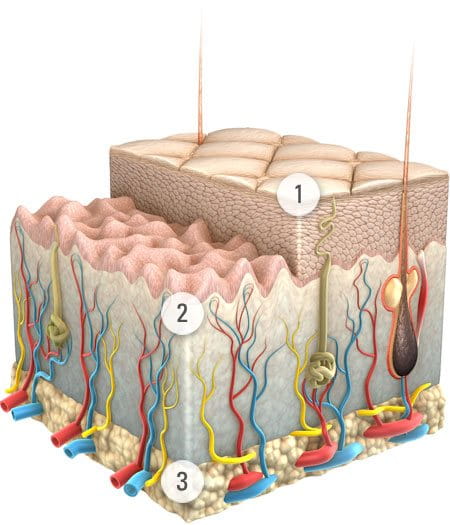
The skin is made up of three different layers: epidermis, dermis and hypodermis. Ageing can occur in each layer, each of them showing different visible signs of ageing.
Epidermal layers
- Changes: Slower cell turnover, reduced lipid production.
- Outward signs: Rougher, drier texture with fine lines and wrinkles. More sensitive to UV light, less efficient healing process and more prone to infection.
Dermal layers
- Changes: 1% annual decrease in collagen and drop in elastin levels. Reduced blood flow.
- Outward signs: A less elastic skin that’s more likely to become damaged and is more prone to wrinkles, loss of density and radiance.
Subdermal layers
- Changes: A drop in both size and number of fat cells. Reduced differentiation capacity.
- Outward signs: A loss of volume, deeper wrinkles and hollow cheeks. Impaired wound healing.
Solutions
How to prevent from premature ageing?
Ageing is a natural process which can not be avoided. But the visible signs of general skin ageing can be diminished. It’s helpful to review the lifestyle choices that affect skin. The external causative factors all trigger the release of free radicals in the body, a process known as oxidative stress. Free radicals cause damage to every part of the skin cells and accelerate the visible signs of ageing: wrinkles, loss of density and radiance and loss of volume.
Avoiding extensive sun exposure

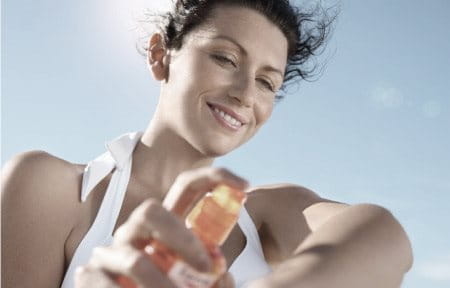
Both prolonged and everyday sun exposure trigger a process called photo-ageing, caused by oxidative stress. The effects of the sun on general skin ageing should not be underestimated.
80% of premature ageing of the skin is a result of the damaging effects of UV rays.
Although the skin has the ability to protect itself from the sun through tanning and thickening of the epidermis, there is a limit. This limit varies from person to person, and once exceeded results in permanent damage to the skin, and acceleration in the signs of ageing.
Anytime we are exposed to the sun, even in winter, the skin is exposed to damaging UV radiation. Read more about the effects of both UVA and UVB on the skin here. This can lead to tanning, sunburn, uneven pigmentation, skin ageing and in the worst cases, even skin cancer. A committed approach to sun protection is needed to reduce the damaging effects of the sun. Integrating the appropriate SPF products into the daily skin care routine will help. An appropriate sunscreen is chosen by skin type, pigmentation type and the sun intensity at the current location. Read more about facial sun protection.
Stop smoking
The chemicals and nicotine in cigarettes triggers oxidative stress in a similar way to pollution. Ceasing smoking is a key part of a holistic approach to delay general skin ageing.
Appropriate skincare routine
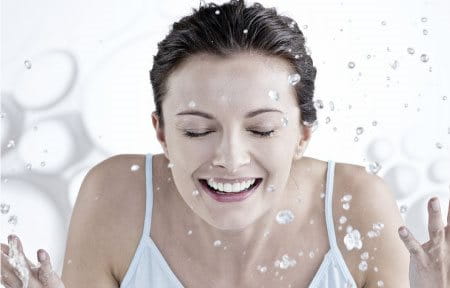
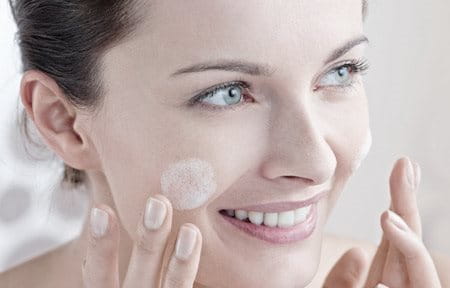
As general skin ageing starts from the age of 25, preventative steps should be taken from as soon as possible to slow down the process and prevent future damage. Looking after the skin with a good skincare routine will help to slow the signs of general skin ageing. The products used should be determined by the primary ageing concern, whether that is wrinkles, loss of volume or a loss of density and radiance.
- Cleansing with a product which removes make-up and dirt without causing stress to the skin, is the first step. It should be mild and not dehydrate the skin.
- Toning skin with an appropriate toner clears skin and prepares skin for the next step.
- Taking care gives skin the hydration and nourishment it needs. This will also help to counter the effects of ageing which often include age-induced dryness.
- If sun exposure is expected throughout the day, an effective facial sun protection should be applied before the care product, independently of the primary ageing concern.
Healthy food
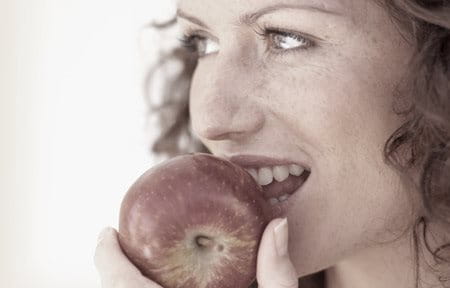
Healthy skin also needs hydration from within.
Drinking supports skin hydration.
Just as oxidative stress has a damaging effect on the skin, eating the right foods can help to limit this process. A diet plentiful in fresh fruits and vegetables is rich in antioxidants and micronutrients. Antioxidants are molecules with the ability to neutralise free radicals. Changing the diet to include more of these key foods can help to slow not only the ageing brought on by the external oxidative stress but also the intrinsic, internal causes of general skin ageing.
Our brand values

We deliver a holistic dermo-cosmetic approach to protect your skin, keep it healthy and radiant.

We work together with leading dermatologist and pharmacist partners around the world to create innovative and effective skincare products they can trust and recommend.

For over 100 years, we have dedicated ourselves to researching and innovating in the field of skin science. We believe in creating active ingredients and soothing formulas with high tolerability that work to help you live your life better each day.
